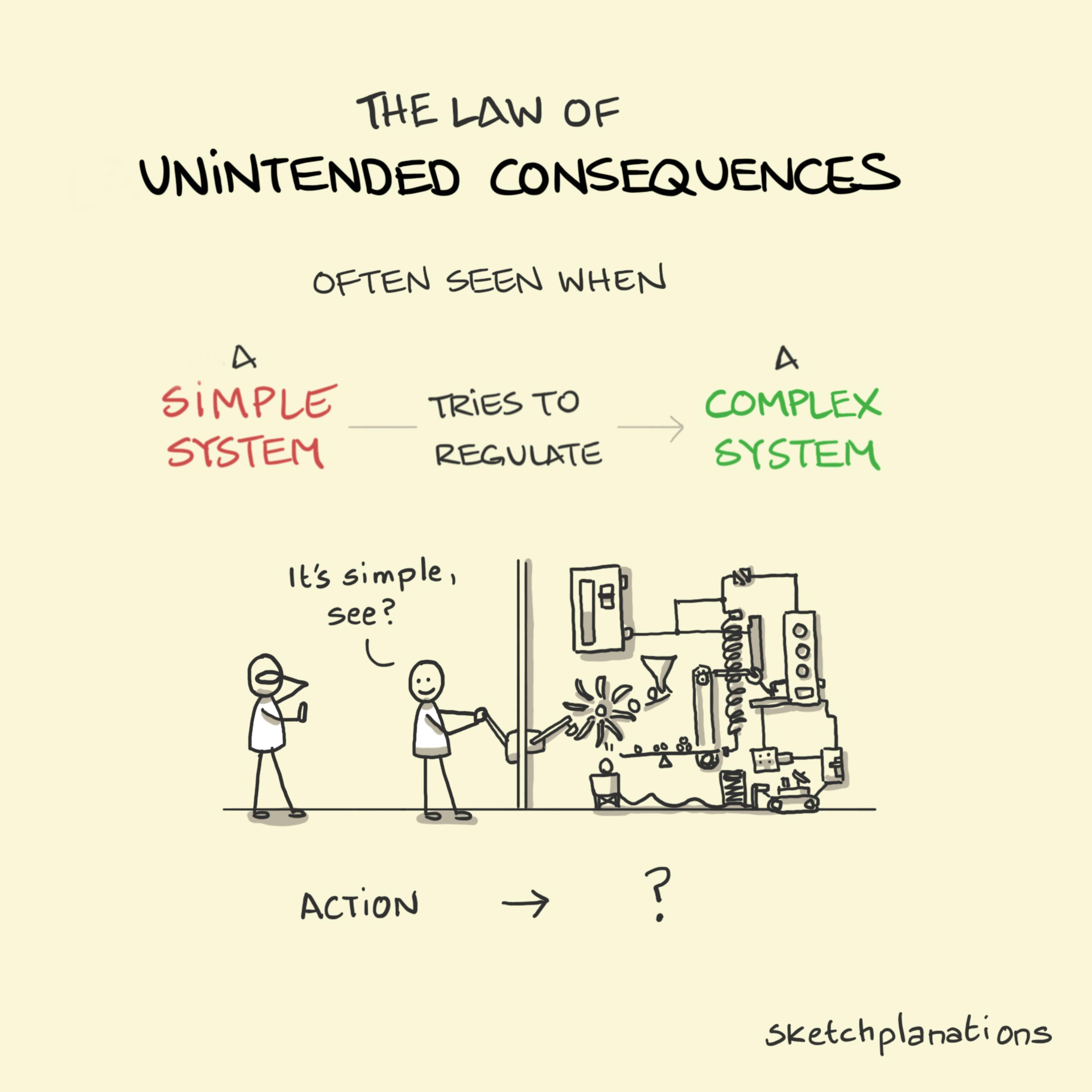The law of unintended consequences

👇 Get new sketches each week
People are complicated. Life is complicated. Ecosystems are complicated. And despite our best efforts or intentions, we have a remarkable history of messing things up in unexpected ways.
One simple theory for why this may be is that unintended consequences are likely to happen whenever we try to regulate a complex system by using a simple system. This so often happens in any kind of large-scale or government attempt to control something within a complex system using relatively simple programs, regulations, laws, policies or other actions. Things will happen that we didn’t anticipate.
Examples of the Law of Unintended Consequences
Examples abound:
- A policy of suppressing forest fires that goes on to cause even greater fires.
- An attempt to reduce traffic in Bogotá by restricting who could drive each day based on licence plates that led people to simply buy more cars.
- More open workplaces that cause people to behave more privately: the transparency paradox.
- Elimination of predators that leads to the proliferation of grazing animals and a reduction in diversity.
- The effects of literally any dam built anywhere.
- What happens when you change software.
- Desire paths
- The Streisand effect
- The Diderot effect
- Or social distancing policies that results in outdoor natural spaces being crammed with people at weekends.
- And on, and on.
The traffic example in Bogotá is from the Freakonomics podcast episode on the cobra effect. The workplace privacy example is known as the transparency paradox.
Related Ideas to the Law of Unintended Consequences
- Often, as with some of these, the outcome can be the opposite of what you intended, known as the cobra effect. Controlling complex systems is difficult.
- Goodhart's Law
- Campbell's Law
- You Get What You Measure
- Conway's Law
- The Law of Diminishing Returns

